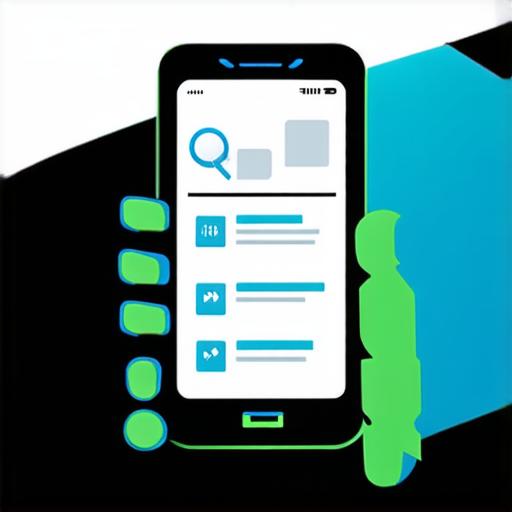Should we develop a mobile app?
Mobile apps are becoming an increasingly popular way for people to interact with technology and access information. As an app developer, you may be considering creating your own mobile app, but before you do, it’s important to consider whether developing a mobile app is the right decision for your business or organization.
Pros of Developing a Mobile App

Increased Engagement
Mobile apps allow users to interact with your business or organization in a more personalized and engaging way. With features such as push notifications, location-based services, and customizable user interfaces, mobile apps can help increase engagement with your audience.
Improved Customer Experience
Increased Visibility
Having a mobile app can increase visibility for your business or organization, as it will be available on users’ mobile devices when they are on-the-go. This increased exposure can lead to more brand awareness and potentially new customers.
Cons of Developing a Mobile App
High Costs
Developing a mobile app can be expensive, as it requires specialized skills and resources such as developers, designers, and marketing experts. Additionally, ongoing maintenance and updates can add to the cost of development and ownership.
Limited Reach
Not all people have access to mobile devices or use mobile apps regularly. This means that developing a mobile app may limit your reach to only those who own a mobile device and are using it.
Time-Consuming Development Process
Developing a mobile app can be a time-consuming process, requiring planning, design, development, and testing phases. This can take several months or even years, depending on the complexity of the app and the resources available.
Case Studies in Mobile App Development
Uber
Uber is a mobile app that allows users to request rides from their mobile device. The app has been a huge success for the company, with over 100 million active users worldwide. The app’s convenience and ease of use have helped increase engagement and customer loyalty, leading to repeat business and referrals.
Starbucks
Starbucks has a mobile app that allows users to view menus, make purchases, and track orders from their mobile device. The app has been a huge success for the company, with over 20 million active users in the United States alone. The app’s convenience and loyalty program have helped increase engagement and customer loyalty, leading to repeat business and referrals.
Instagram is a social media app that allows users to share photos and videos on their mobile device. The app has been a huge success for the company, with over 1 billion active users worldwide. The app’s convenience and visual nature have helped increase engagement and user-generated content, leading to increased brand awareness and potential new customers.
Expert Opinions on Mobile App Development
Michael Dell
"Mobile is rapidly becoming the center of computing, and we are seeing this shift happening across all industries. Developing a mobile app can be an effective way to engage with customers and increase brand awareness."
Neil Patel
"While developing a mobile app can be expensive and time-consuming, it can also lead to increased engagement, customer loyalty, and potentially new customers. However, it’s important to consider the target audience and whether they are likely to use mobile technology before investing in an app."
Gary Vaynerchuk
"Mobile apps are a great way for businesses to connect with their customers on-the-go and provide a seamless experience. However, it’s important to remember that not all people have access to mobile devices or use mobile apps regularly, so it’s important to consider the target audience before investing in an app."
Real-Life Examples of Mobile App Development
Fitness Center App
A fitness center app might allow users to track their workouts, set goals, and receive reminders about upcoming classes or events. The app could also include features such as a virtual tour of the gym, class schedules, and special promotions. This can help increase engagement and customer loyalty, leading to repeat business and referrals.
E-Commerce App
An e-commerce website might have a mobile app that allows customers to browse products, make purchases, and track orders from their mobile device. The app could also include features such as personalized product recommendations, special promotions, and loyalty programs. This can help improve customer satisfaction and loyalty, leading to repeat business and referrals.
Restaurant App
A restaurant app might allow users to view menus, make reservations, and receive promotional offers. The app could also include features such as a virtual tour of the restaurant, online ordering, and loyalty programs. This can help increase engagement and customer loyalty, leading to repeat business and referrals.
FAQs on Mobile App Development
Q: What are some benefits of developing a mobile app?
A: Increased engagement, improved customer experience, increased visibility, and potentially new customers.
Q: What are some drawbacks of developing a mobile app?
A: High costs, limited reach, and time-consuming development process.
Q: How can I determine if my business or organization should develop a mobile app?
A: Consider your target audience and whether they are likely to use mobile technology, and weigh the benefits against the costs of development and ownership.
